There are too many great performances to try and rank the ten best. Who is the best villain? The best hero? The best romantic lead? The best in a comedy role? Which actor made me cry the most or laugh the hardest? Who had the most creepy portrayal? The answers are many and often changing depending on the day of the week and which movie I’ve watched most recently. Humphrey Bogart in “the Maltese Falcon” is brilliant, Anthony Perkins in “Psycho” is always a pleasure to watch the good son morph into the bad mother. Seeing Maria Falconetti in 1928’s “The Passion of Joan of Arc” is seeing a brave performance in a classic of the silent era.
Henry Fonda in “The Grapes of Wrath” is powerful stuff, so is Jane Darwell. It is rare to see two such subtle, timeless performances in the same film play so well off of each other. There are also actors who look at a role as a chance to make subtlety a thing of the past. Cary Grant in “Arsenic and Old Lace” is comedy writ large. Subtle it is not. It’s delightful thing to watch too. Meryl Streep in “Sophie’s Choice” is the polar opposite, all heartbreak.
There are hundreds of times I’ve sat in the theater and been amazed by performances. Just as likely, there were times I was at home, watching a dvd of some undiscovered gem or a favorite I put on when I need to revisit one of the many films that make me love movies. Below is a list that is far from scientific. It’s not based on any criteria other than one question: Did I enjoy watching the performance? Enjoy.
James Stewart
George Bailey, It’s A Wonderful Life (1946)
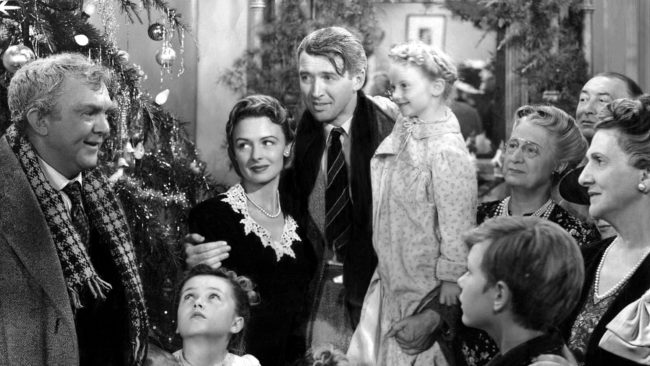
What would the world look like if you were never born? In Frank Capra’s eternal classic, “It’s A Wonderful Life,” George Bailey (James Stewart) gets to find out. Stewart is an everyman pushed to his limits in a power struggle. Eventually, he heads to the local bridge to jump into the icy waters below. Yes, it’s a happy set up. George is rescued by apprentice angel Clarence, who is out to earn his wings. Seeing Stewart play out Bailey’s life in the role of dutiful son, hope for the hopeless and local savior is an amazing thing to watch. Seeing his reaction when he reaches into his pocket and finds the petals to his daughter Zuzu’s — yes, it’s a ridiculous name — flower is priceless. There is no better expression of joy on any actor’s face as Bailey runs through town rejoicing. Capra’s films always had an eye for the everyman, the common dude, fighting against the powers that be. Stewart nails the role, giving up his lifelong dreams to take care of his family business, his city and his loved ones. If you can’t find a sense of optimism at the end, you have a heart so dark it is a black hole where hope goes to die.
Jodie Foster
Clarice Starling, The Silence of the Lambs (1991)
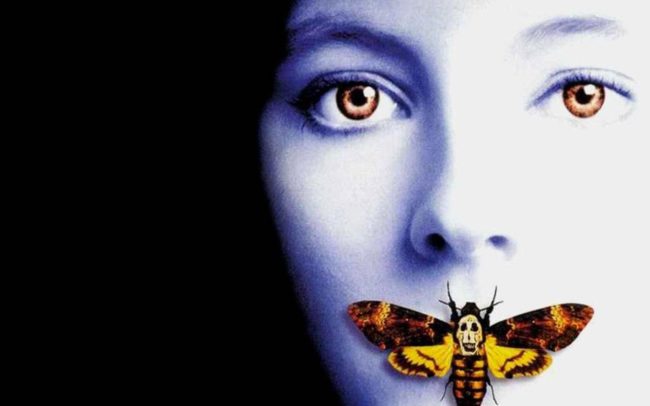
An FBI agent in training put into the middle of an ongoing investigation of a serial killer is a terrifying enough prospect. Now, pit that rookie against one of the brightest criminal minds, who also happens to be insane, and you have the basis for one of the most powerful, well-acted roles ever to cross the screen. Jodie Foster had already won an Oscar before putting on a faint southern accent and detached sense of cool in the face of evil. Playing opposite Anthony Hopkins and not giving an inch, Foster as Starling proves herself a worthy adversary to Hannibal Lecter. It’s almost impossible to picture the role played by Michelle Pfeiffer, who was originally offered the part. At times tough, other times terrified, Foster earned the Oscar that year, hands down.
Anthony Hopkins
Hannibal Lecter, The Silence of the Lambs (1991)
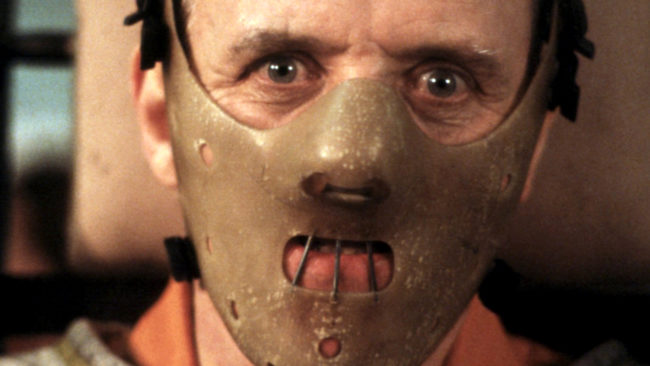
Playing opposite Jodie Foster brought out the best in Hopkins, already a great actor. Handed the role of a lifetime, he did not let viewers down. Hannibal Lecter is insane, and yet the calmest man in the room, even if that room is an 8 x 10 maximum security cell. Hopkins prepared for the role by studying the files of serial killers. Also, he visited prisons and studied convicted murderers and was present during court hearings concerning gruesome murderers and serial killings. The initial scene between Hopkins and Foster has the harsh moment when Lecter mocks Starling’s southern accent, which was improvised on the spot. Foster’s horrified reaction was genuine; she felt personally attacked. She later thanked Hopkins for generating such an honest reaction. Separate of each other, Hopkins and Foster pushed each other to be better than their usual excellence.
Paul Newman
Butch, Butch Cassidy and the Sundance Kid (1969)
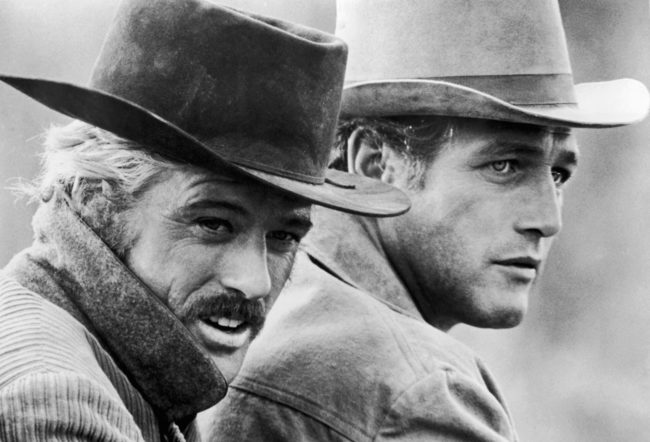
Sundance: “I can’t swim?”
Butch (Laughing): “Are you crazy, the fall will probably kill you!”
The look on Paul Newman’s face as he laughs at co-star Robert Redford is priceless. It’s also consistent with the tone of the whole film. “Butch Cassidy and the Sundance Kid” is a classic American film; funny in parts, thrilling in others and in the end the heroes aren’t necessarily heroes at all. Newman won an Academy Award for “The Color of Money” in 1986, it was only about two decades late. A wise-ass mouth and a sense of adventure run through his performance. Redford is almost as good, and the pair make a game of playing off of one another.
John Cusack
Rob Gordon, High Fidelity (2000)
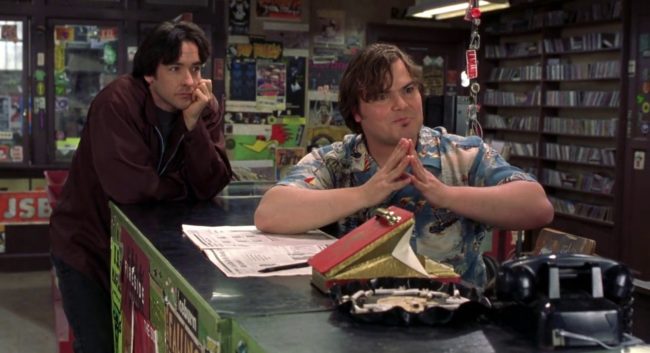
Nick Hornby’s novel “High Fidelity” is one of my favorite books of all-time. John Cusack brought the story to life as Rob Gordon, owner of a failing record store and a failed relationship. Watching him deal with his employees (Jack Black before he became incredibly annoying and Todd Louiso) is like watching a dad with two kids and one ice cream; somebody is going to be in a foul mood at all times. The interaction in his head, while he over-thinks every relationship he’s had in an attempt to fix the one he’s trying to save, is funny, sad, sweet and terrible all
at once. Cusack plays Gordon like a man on the verge of growing up and not sure what to do next. He also has the world’s most impressive record collection and gets sage advice from Bruce Springsteen, who sits on Gordon’s bed and strums a guitar.
Jack Nicholson
Jack Torrance, The Shining (1980)
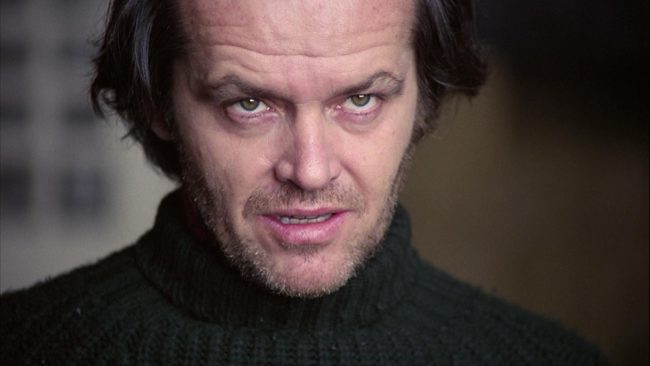
If there is a list of great performances on film, Jack Nicholson in “The Shining” has to be on it, or it is not a list. Watching Jack slowly come unhinged in a snow-bound hotel as he tries to write his novel, not kill his family and avoid going crazy is a treat. Stephen King’s writing is brilliant, Stanley Kubrick’s direction is masterful, but it is Nicholson that makes this film tick. All work and no play makes Jack a dull boy indeed.
Lauren Bacall
Slim, To Have and Have Not (1944)
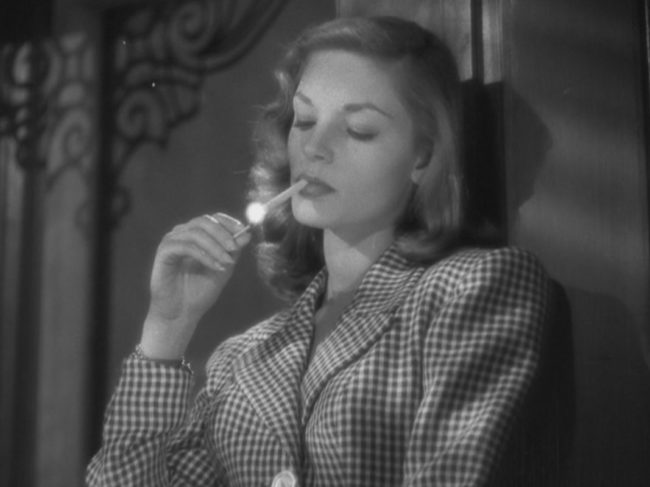
There are precious few moments that capture the precise moment when you can see a star being born. Lauren Bacall was 19 years-old, but already comes across as worldly wise who is more than a match for anyone. Her voice is husky, her smile sly and she knows she has the room, and Humphrey Bogart, in the palm of her hand. “To Have and Have Not” is a brilliant film that launched the career of a legend. Harry Morgan (Bogart) and his perpetually drunk sidekick Eddie, work on a boat for hire on the island of Martinique. With World War II swirling all around, they are forced to take a job for the resistance. They meet Marie”Slim” Browning, a nightclub singer/resistance sympathizer with a smart-aleck streak running through her.
You know Morgan’s life is forever changed, so is Bogart’s, when Bacall utters the now classic line, “You know how to whistle, don’t you, Steve? You just put your lips together and blow.” Every heterosexual male is powerless to the pure sex appeal and absolute confidence of the actress, a person who shattered every onscreen seduction ever filmed.
Sidney Poitier
Virgil Tibbs, In the Heat of the Night (1967)
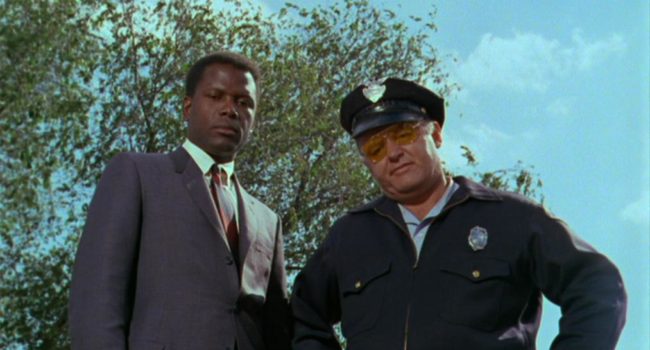
Sidney Poitier had already made history, winning the Best Actor prize three years earlier for “Lilies in the Field,” and costar Rod Steiger’s gruff performance as a stubborn Mississippi sheriff sucked up most of the pre-Oscar attention. Yet it’s still staggering that Poitier’s role, as a proud Philadelphia detective (“They call me Mr. Tibbs!”) marooned in the Deep South, missed the cut. In the movie’s watershed scene, Poitier’s character responds to a slap from a plantation owner by slapping the old white man right back. In that moment the whole movie crackles with genuine danger, all thanks to Poitier’s power. There is plenty more to recommend this film, but Poitier and Steiger are worth the investment of your time by themselves.
Gloria Swanson
Norma Desmond, Sunset Boulevard (1950)
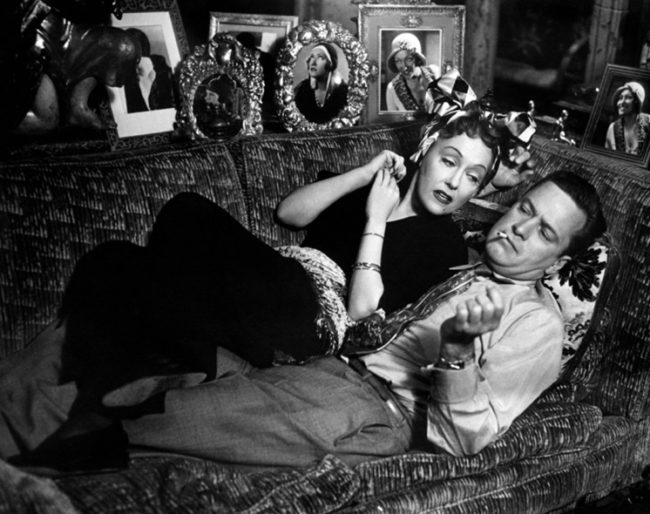
If you look in the dictionary, next to the word camp, you will see a picture of Gloria Swanson as Norma Desmond. Swanson is all in on the self-centered has-been losing grip with reality. Desmond elects to close out the world outside and let her delusions run wild. There is vulnerability and fear in her eyes as she cuts loose with rapid-fire dialogue. Her action toward her butler Max, who was once the director who gave Desmond her big break, is cruel beyond words. She dreams of a comeback when she meets a young writer who becomes her lover. Madness and murder is not far behind.
Bill Murray
Phil Connors, Groundhog Day (1993)
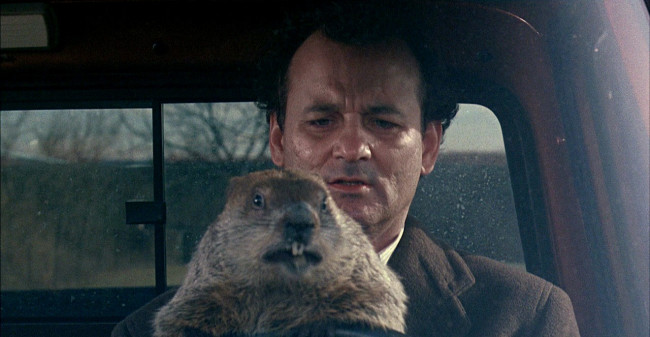
The lesson, “Don’t drive angry” is just one of the many Bill Murray’s Phil Connor learns while repeating the same day over and over again. He’s a weatherman stuck in an endless loop in Punxsutawney, Pa., on Groundhog Day, and no matter what he does, the next day starts all again. Director Harold Ramis gave Murray room to use his deadpan face to convey an all-too-aware look. “I Got You Babe” by Sonny and Cher wakes him every morning at the Bed and Breakfast he stays at. The same deep well of a puddle interrupts his walk to the news scene. The same tray of dishes crashes at the local diner. Over and over Murray tries something different each time only to realize the same results: failure to move past repeating Groundhog Day. Murray is at turns ecstatic, resigned, funny, sad, heroic, adventurous and subdued. He makes the whole movie with a performance that he has yet to equal.
Dennis Hopper
Frank Booth, Blue Velvet (1986)
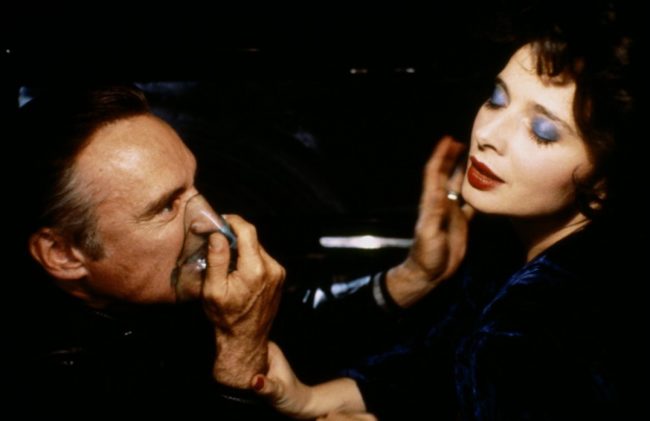
Dennis Hopper’s Frank Booth may be one of the most unhinged, disturbing portrayals I have ever seen. “Blue Velvet” is David Lynch at his creepy, unsettling best. Hopper is the anti-glue that threatens to break the film apart. Booth is psychotic, rage-filled and degrading fast. Sucking from an oxygen tank one minute, he anchors Lynch’s vision of a dystopian suburb where Dorothy Vallens (Isabella Rossellini, also nuanced and well cast) husband is held captive and Kyle MacLachlan’s Jeffrey Beaumont is drawn into a world he does not understand. Hopper sells the role and defines an era with his demand “Don’t you fucking look at me!” A sadistic monster that has a love of Roy Orbison almost as much as I do.
Gene Kelly
Don Lockwood, Singin’ in the Rain (1952)
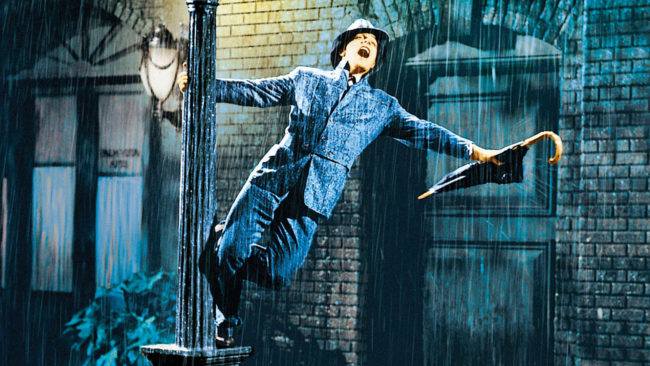
As Don Lockwood in “Singin’ in the Rain,” Gene Kelly set the standard for acting and singing in a musical. With rain falling around him, Kelly has joy on his face as he belts out a tune that is pretty much the definition of an earworm. The fact that Kelly filmed the sequence while sick with a temperature of 101 is all the more impressive. Early drafts of the film had Don as a singing cowboy, but making the story about a silent film star making the switch to talkies was the perfect conceit. Debbie Reynolds and Donald O’Connor certainly help Kelly round out the story and keep things moving forward, but it is his showcase.
Jessica Gunning
Sian, Pride (2014)
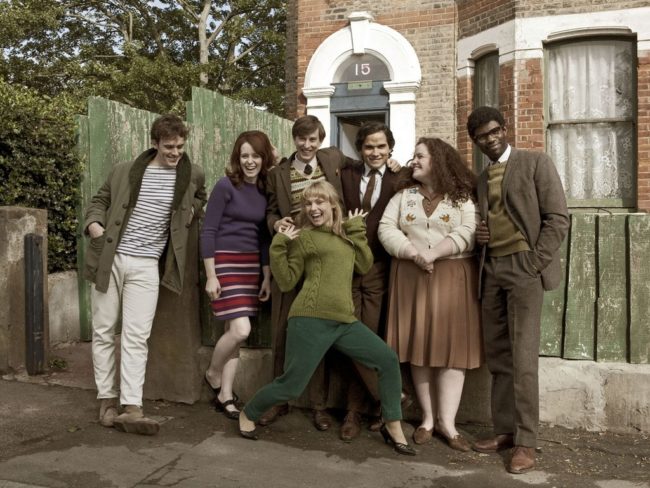
There are movies that you hear about months before they come out and they catch your interest. You look forward to seeing it and when the day finally comes, you are not disappointed. “Pride” is one of those movies for me. It’s a small movie about a group of gays and lesbians that raise money and the hopes of striking Welsh coal miners. Based on a true story of the 1984 coal miner’s strike in the heart of Thatcher’s U.K. and the unlikely alliance between two seemingly different people.
The Welsh mining town of Onllwyn is on its knees and badly in need of help. Under pressure from the police, the government and their own ever-weakening resolve. In the heart of this story is a wife, a mom, and a civic volunteer, Sian (Jessica Gunning) who wears a world-weary pride on her face. She’s also got a spine of steel to go along with the tender heart. From springing a group of locals being held without charges to shaking her fist at authority (and ending up as the first woman from her district elected to the House of Commons), Sian doesn’t shrink from a fight, or lower herself to the thugs on the opposite side of the strike. Gunning did not win any awards, but sometimes, the most lasting impression is from the roles played by someone who can roll up her sleeves and get the work of acting done.
David Strathairn
Eddie Cicotte, Eight Men Out (1988)
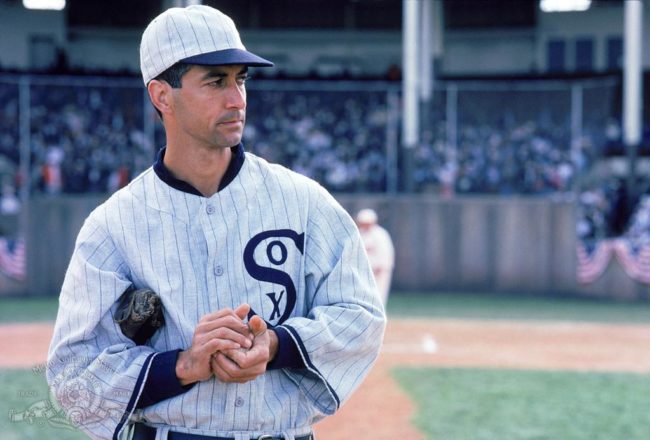
The 1919 Chicago White Sox threw the World Series and it rocked the nation. Team owner Charles Comiskey was a notorious cheapskate, his players hated him and were hideously underpaid. In the center of it all was star pitcher Eddie Cicotte (played with understated sadness by David Strathairn). Seeing Strathairn’s face fill with resignation after leaving Comiskey’s office, hat in hand, after being denied his bonus is heartbreaking. In a film about baseball, conflicted decent people pushed too far and one of the biggest scandals in sports history, Strathairn is the glue that holds the film together.
